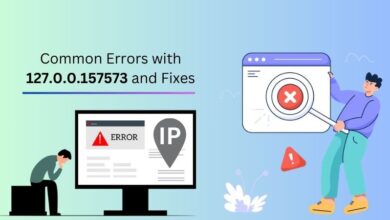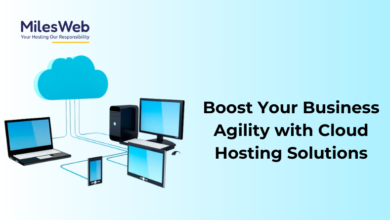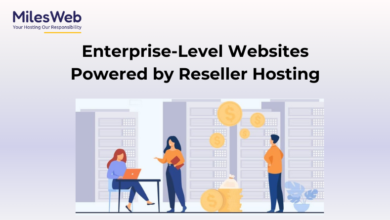How Enterprise Cloud Can Revolutionize Your Business Operations

Enterprise cloud enables midsize organizations to leverage leading-edge technologies and shift IT to a services model. It reduces costs while increasing agility and reducing security risk.
Companies in retail, manufacturing, financial services, healthcare, and federal agencies are adopting enterprise cloud. It revolutionizes their business operations. It allows them to create unique customer experiences while simplifying infrastructure and reducing IT costs.
Cost Savings
Enterprise Cloud can help businesses cut costs in many ways. First, it eliminates hardware expenses by moving workloads to the cloud. It reduces the need to purchase or lease data centers, servers, and other equipment. Moving to the cloud also eliminates the need to pay for maintenance and upgrades.
Another way to cut cloud costs is to leverage autoscaling and scheduling. These tools can identify when a workload uses more or less than it needs and automatically adjust those resources. For example, it can help businesses save on infrastructure costs by shutting down access to idle VMs.
Another way to save money is to refocus IT on business-critical functions. By doing this, IT can help businesses achieve better investment returns. For example, IT can help businesses achieve more agile development processes by deploying tools that provide a user-friendly UI for developers and end users. These tools can simplify workflows and improve build speeds for various applications.
Scalability
Scalability is generally defined as the ability of a system to increase capacity in response to demand. However, it can also include the ability to scale resources and de-provision them as needed automatically. The ability to automatically scale can save businesses significant money by avoiding over-provisioning. Understanding what kind of scalability is needed for your business and using a solution to help you achieve your goals is essential.
For example, an online store may experience a sudden spike in traffic during seasonal sales or when a famous influencer recommends their product. If the platform goes down at this time, the company could lose customers and profits. A scalable cloud service can quickly increase power and capacity to handle these sudden spikes without requiring IT to invest in new hardware.
Similarly, companies that develop and sell software products can use the enterprise cloud to ensure their application is stable, reliable, and secure. It can help them reduce the time it takes to get a product to market and improve their competitive advantage.
Flexibility
A business that utilizes the enterprise cloud can avoid expensive hardware upgrades and out-of-cycle IT purchases. In addition, they can benefit from a pay-as-you-go system that allows companies to scale up or down depending on the needs of their organization. This flexibility will also reduce staffing costs and energy consumption.
Moreover, the enterprise cloud provides access to company data from anywhere with an internet connection. This feature helps staff members keep up-to-date with the latest information and stay on track with their projects. It is especially beneficial for employees who travel frequently or those working remotely.
In addition, the flexible features of enterprise cloud help businesses improve customer service. They can automate ticket responses and streamline omnichannel support. Additionally, they can offer a better self-service portal with easier-to-use templates and simplified user interfaces. It will help companies improve their overall customer experience and increase their profits. The most important thing to remember when implementing enterprise cloud is to ensure your IT team has the knowledge and resources needed to succeed. It includes ensuring that all aspects of the cloud architecture are secure.
Security
Enterprises need a way to store, maintain, and easily access vast data remotely and securely. By integrating a cloud security architecture into their IT infrastructure, enterprises can achieve these goals while cutting operating costs.
However, security in the cloud is still a significant concern for many organizations. Malicious actors target cloud environments to gain access to sensitive information, resulting in massive data breaches and downtime. Cloud security measures can be implemented to mitigate these risks, including centralized visibility and effective logging capabilities.
The key to enterprise security is ensuring only privileged users can access a company’s most sensitive data. It can be achieved through solid identity and access management, such as StrongDM’s people-first access platform. This solution delivers consistent security for on-prem, hybrid, and multi-cloud deployments by combining authentication, authorization, networking, and observability. For instance, granular visibility and detailed logs reveal every session, query, and command across servers, databases, Kubernetes clusters, and cloud environments. It helps IT teams connect the dots between security misconfigurations and vulnerabilities that can be addressed immediately.
Automation
To take advantage of the scalability and flexibility of cloud computing, businesses need to automate their processes. It will help reduce the workload for IT staff and free up resources for more critical tasks. It can also help with security and performance monitoring. Automation can back up data, set up servers automatically, and find and eliminate inefficient processes.
It can improve your business’s resiliency by protecting your systems against failures such as hardware failure and cyber attacks. In addition, it can automatically transfer workloads to temporary standby server locations. It can also monitor CPU usage and improve system response time by optimizing storage, VMs, and databases.
Enterprise cloud simplifies the IT environment by allowing developers to work on different platforms simultaneously. It reduces the need for multiple individuals to log into mission-critical systems. It also helps with security by reducing human error and preventing account breaches. In addition, it makes deploying and accessing cloud solutions easier by using templates and simplified UIs. Allows you to deploy new services and features in a shorter time.





